I had the pleasure of interviewing Multi-disciplinary artist Ffion Campbell-Davies recently. In this interview we will be talking all things arts, creativity, Identity and Wales.
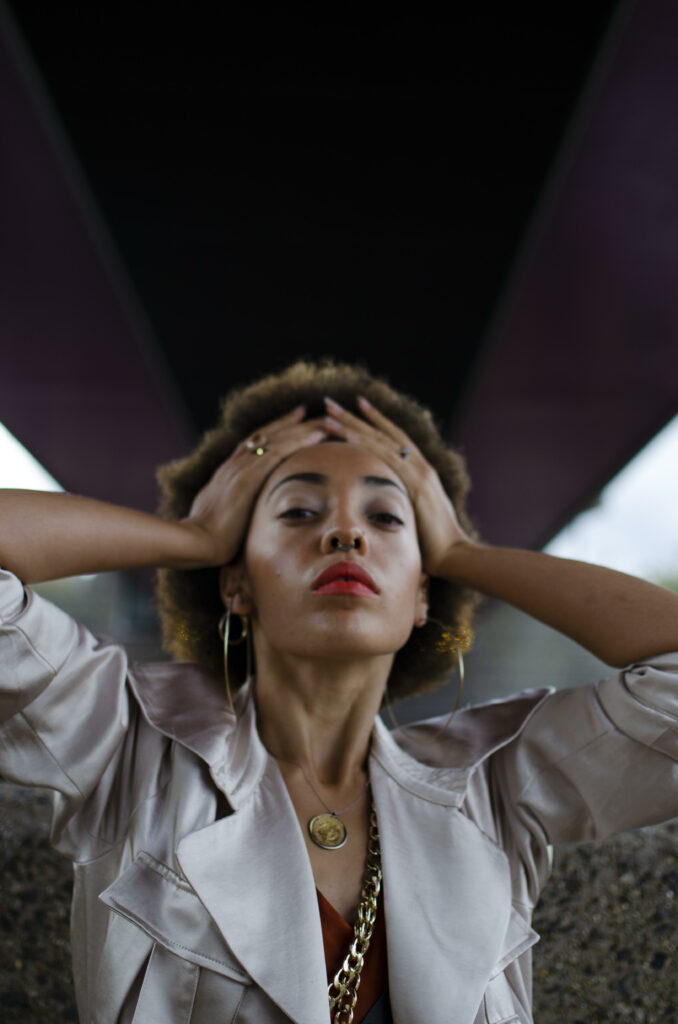
Hi Ffion, it’s lovely to meet you and to get the opportunity to pick your brains. So just to introduce yourself to our readers, please can you give them some background on yourself and how you define yourself as an artist?
I was born and raised in Wales and moved to study at London School Of Contemporary Dance, graduating in 2013. I have since worked in various avenues within the industry as performer, teacher and choreographer. Over the last 5 years I have been developing my own artistic practice and creating my own work as well as collaborating with other artists.
I term myself as a multidisciplinary artist as a few of my disciplines other than dance are at the core of my work. My self produced work cross pollinates with music production, text, voice, expressionism, exhibitionsim, dramaturgical principles and [more recently] visual & digital art.
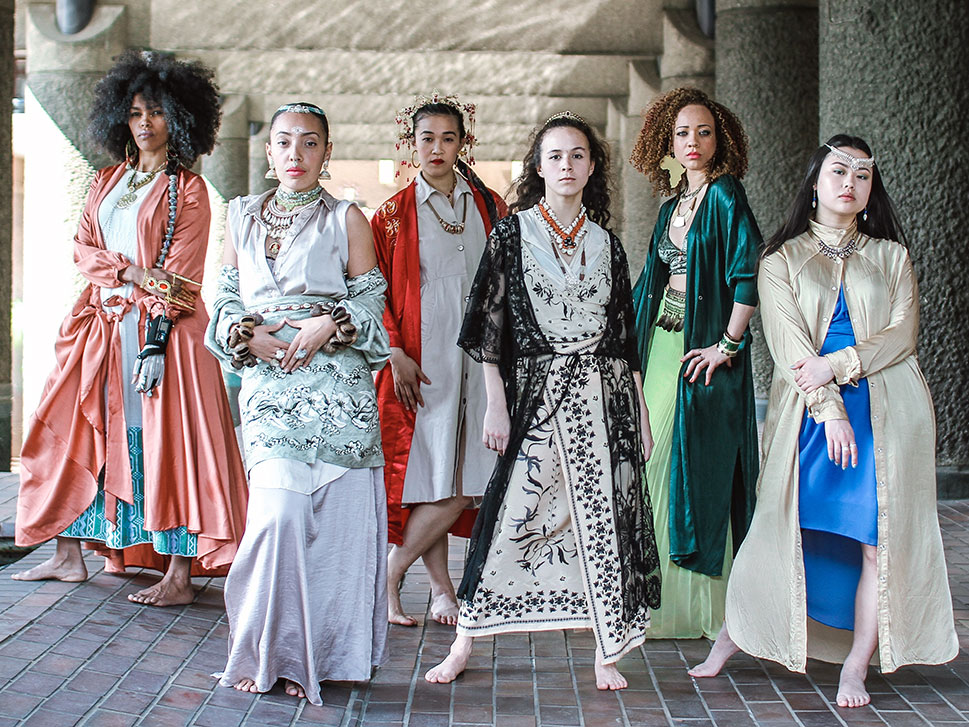
I am a co-founding member of all female company collective House Of Absolute; we are a diverse group of multidisciplinary females creating boundary crossing, politically active theatre, sight specific and digital movement, sound & visual works collectively and independently.
My work explores themes and subjects around psychoanalysis, gender, race and spirituality, working with experimental devices and the influence of ritual to dismantle conditions around definition, power and politics.
So moving to London from Wales to gain better opportunities in the arts seems like a common trend among young people. Why do you think that is and what can we do here in Wales to change that?
I believe Wales has a lot of resources within its artistic demographic, with multiple communities of various levels and spheres of skill and knowledge. I recognise that infrastructures have excluded and disabled social mobility for many communities in being able to exercise and contribute to the collective central culture of arts in Wales.
There are many conditions which are similar in all cities here in the UK, but I believe London has an effective fluency in generating micro economies for artists to exercise and contribute to the collective culture. There seems to generally be more structures in place for diverse sources of funding to support varying different artistic communities, where sub cultures are actually at the core of reinforcing and empowering the collective. Because of this naturally people of any socio economic background have more of an access point to engage in the artistic climate, with more spread for opportunity and information to be easily accessed.
It is difficult for communities/artists outside of the capital culture [in regards to Wales; the traditional welsh cultural agenda] to be part of the solution of development and empowerment when many organisations of funding, or spaces of information and power are gated for exclusive representatives.
I see diversity as a fertiliser for soil, just the same way varying different types of stimuli rapidly develop the neural connectors in our brain, we need constant interaction with varying different human beings of different traditions, sciences, arts and practices to fuel innovation. This is something London taps into very well, in which I believe people from all over the world are drawn to.
Traditions are never lost and I believe Wales has a wonderful opportunity to find synergy with its ancient history and the fertility of its vastly diverse origins to energise and activate all representatives in wales of all different cultural backgrounds to cross pollinate.
As you have mentioned whilst in London, you’ve been a member of the company ‘House of Absolute’ which combines various street styles alongside other styles of movement. How has Hip-Hop culture helped to develop you as a Contemporary artist?
Hip-Hop has been at the axis of my growth and development. It is one of the most iconic symbols for the term ‘contemporary’ quite literally it is with the times. Hip-Hop is not only a ‘style’ but also a culture and even a philosophy with which most people involved would say it is a way of life. Hip-Hop is a mode of resistance, a political instrument for reconstruction. It is one of the most influential cultures on the planet, because of its wealth of knowledge and teachings through trans-generational art, it is legacy.
It is a cultural library archive of the preservation of people of the diaspora, which houses many different languages of the body, many trans-migrational stories of the intersectionality between races and cultures, and serves as a global home for people of any origin to communicate through mind body and spirit.
Of recent years Hip-Hop ‘theatre’ has emerged as another form of innovation to supplement indoctrinated Eurocentric modalities of black box performative culture. The marriage of visual art, story telling, acting, poetry, immersive engagement, grime music and the genius of Hip-Hop movement language and musicality. This has had a great impact on transforming my perception of using theatre space as ritual, broadcasting cultural and ancestral presence.
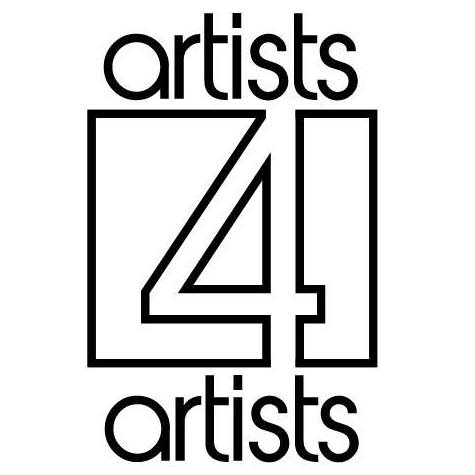
Overall my support and mentorship has come from;
Dance communities and peers in the underground Hip-Hop scene,
Artist4Artist an organisation run by artists for artists
Founding members and representatives of Sadler’s Wells Breaking Convention festival.
Growing up in Cardiff, do you think there is a significant Hip-Hop scene here and what do you think can be done to help it evolve?
There is definitely a Hip-Hop scene in Cardiff, however maybe lacking a cohesive integration of the multiple layers and dimensions of inclusivity. It is important for artists of all practices, sectors, class and culture to be in dialogue.
For examples different Hip-Hop music and visual artists, writers, poets, event organisers, venues and dancers could have more consistent relations with each other. If there aren’t visible invites and hubs/centres for representation, cultural information remains fragmented, and the overall culture cannot develop infrastructures for impact. Funding is also at the core of this.
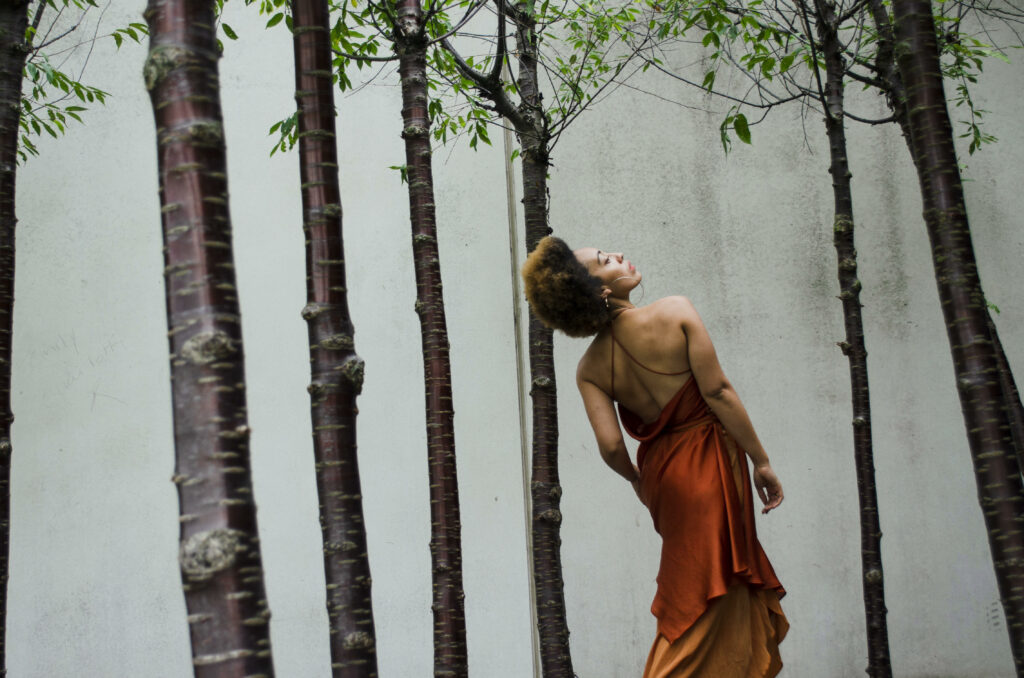
I understand that a lot of your work uses Identity as a concept. When in WHO (2017), you said “#TheSystem and #Society do not provide space for authentic self”, what did you mean by that and do you still find it relevant today?
I do believe society has had a long term relationship with resistance to change, and the notion that homogeny is safe, difference is threat. I recognise the culture of duality that has been at play for a long while, and that at present we may be realising as a collective society in our need for each other, dependence and preservation as a whole, which is the acknowledgement of polarity and the active inclusion for unity.
We still seem to have many protected and guarded infrastructures which dictate our attention towards fundamentalism, with which any organically evolving contemporary innovations outside of societally validated constructs are met with fear, discomfort and rejection, unless it is something recognised and originated within elitist culture.
So to draw from these concepts and bring it into the personal sphere, I believe we as individuals have the capacity to re invent ourselves any way we choose, but at the cost of being questioned and challenged constantly by those who are still existing within societal constructs.
On the one side, anything foreign to those constructs causes great discomfort, essentially the unknown, an anomaly to which we feel out of depth with our relatability. On the other side there is fatigue; being misunderstood, misrepresented, displaced, excluded, silenced, ignored, isolated and questioned. For many that is a lived experience that is still happening today. I think these polarities exist everywhere because it is essentially to do with consciousness and perception.
I feel lots of things have become cataclysmic in our society of recent. People are really fighting for spaces to empower authenticity and difference. Actually pioneering companies and representatives look to bespoke and eclectic minority individuals for inspiration and influence. The invisible ones are the influencers for those who are always visible. For example if we’re talking about fashion and media, it’s everyday people who inspire and influence those making decisions on top about what gets modelled and represented.
I still believe there are conditions we are pressured to obtain in the broader mainstream culture which restrict us, only validating and respecting things we are a custom too, things we are told and taught have value, anything outside of that does not posess the same power. Things we do not understand, we do not like or we do not feel comfortable with we disregard. But authenticity, originality and honesty is so powerful, in the overall context of polarity, we as a society now are recognising we need these attributes, and we are seeing willingness for difficult and uncomfortable conversations in the wider culture.
In my perspective for the majority there’s still a lot of shame, fear and taboo around self expression, and this is what makes art so evocative. When many people feel the fear of judgment, they look to artists who do and say all the things most people are terrified to do, there is this sacred unspoken empathic emancipation shared between artist and audience.
You also spoke about the concept of ‘Mind, Body and Spirit coming together at a meeting point’ in an interview with Catch the Vibes last year. How does this psycho analysis come into the process of your making? Be that your movement or your other creative outlets?
It is particularly through the lens of dramaturgy that I get the opportunity through my work to investigate psychology. I often find that for performative works to have concrete coherence in how the work is experienced, there needs to be psychological integrity, either between the relationship of the performance and audience, or also the chronology of the work, and what the work is doing, what role it serves as an experience.
Quite often I have a focal drive to want to evoke and impact the audience in some kind of interpersonal way. In order to do that safely I really do need to understand the effect on myself of what I’m experiencing. The effect of the process, what psychological journey am I undergoing just to create the work, and then from that process constructing an infrastructure that allows me to guide the viewer into the areas of enquiry that exist in the work.
I work with all layers; the visual, the audible, the sensory, the intellectual, to find different ways of inviting my audience into the non verbal conversation between spectating, listening and actively responding. Regardless of how big or small those social queues are, we all feel it when an audience collectively holds their breath at a certain point, sometimes its the silence that communicates consent, or the twitch or cough coming from the upper left auditorium, we know that particular person just non verbally objected ‘subconsciously’.
If it’s an immersive work, there are other dimensions at play, with proximity being a massive psychological conversation. There is our body language and our power dynamics; whether an audience member sits on the floor cross legged, or stands right behind me, we have varying different capacities of what access points we have to a psychological dialogue. And then I wonder which way can I communicate this performance. Of course eye contact and touch being the most dynamic contributions.
All of these elements play a vital role in my process, and its why ritual is such a pivotal instrument for creation in my work. Ritual allows the mental/psychological space to be more transient, meaning I can access the collective mental space with the openness and safety of a held experience set by intentions. This naturally propels the willingness of an audience to be vulnerable with me in the conversation, allowing for suppleness and great changes to occur in perception.
Performance work is always a conversation for me, it’s not about interrogating my own psychology to create work, it is about really understanding psychology to execute distinct forms of communication between my work and the audience. To do that effectively I need to understand a great deal of my own psychology. I feel that’s where the freedom to shift perception and rewrite history comes from, the game changers who change the world through art.

How has lockdown affected you as an artist? And also what long term effects, do you see Covid-19, having on your artistic practise?
Covid has given me the opportunity to redefine my priorities, values, boundaries and reinforce my principles. I have had to question my purpose beyond the industry, and become aware of areas that I have not developed and the areas which I have neglected in myself.
This time has also allowed me to rediscover a new way of living, a new way of working and a new way of communicating. I have had many moments of exhaustion, overwhelming bewilderment and uncertainty, but none of these feelings are new to me, in fact the last two years have been so groundbreaking’ly challenging that lockdown was like a breeze. The political and economic climate however has had a great impact on my perception of reality and my stability within that. But it’s the sense of community that has become more evident during this time for me, with a beautiful anchoring in the various relationships I have with people that have grown deeper and stronger during this time.
Following on from that actually, how has lockdown affected you personally? I recognise that we often separate performers from people and that needs to be raised.
Lockdown has allowed me to journey inwards with a great deal of introspection and time to reconstruct myself from the core. These are elements I do practice, however there is never usually time to really uncover the uncomfortable subconscious patterns that need redefining, when I am moving from one project to another with usually no recovery time.
Although challenging, I have been able to sit with myself and confront difficult things and rewrite those narratives.
I have also been able to connect with people I would have never usually connected with prior to Covid, simply because online networking is far more direct and immediate. Fundamentally I have been able to slow down and have moments of stillness and solitude, amongst the chaos.
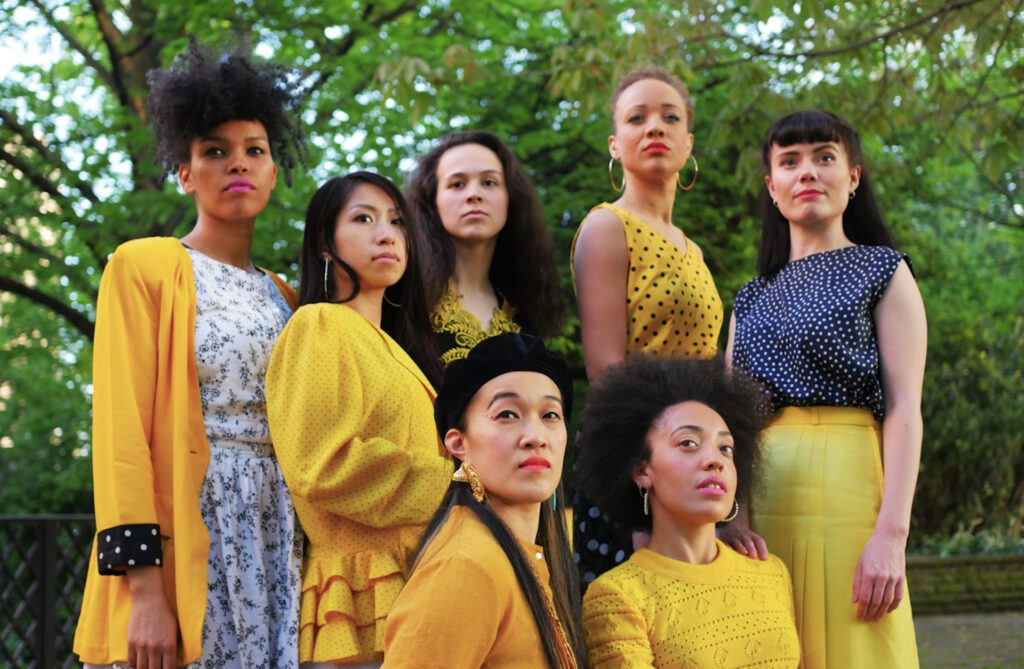
I’m a big fan of the ‘Reasons to be Cheerful’ podcast and something they do on each episode is ask their guest “If they were in government as an advisor for their specialist field, what would be the first change that they would make?”
So I’d like to ask you, if you were an advisor/ representative for the Arts sector, what would be the first change that you would make?
I would want to change the ‘perceived’ division between economy, finance and the arts. I believe so many fundamental movements within history and society sit on a large library of knowledge in strategy, financial infrastructures, economic preservation, assimilation as well as generational business modes that support successful agendas in all industries.
Often even the simplest areas for accessing training in these fields are seen so far removed from the arts. Educational models are often attuned to industries regarded superior, operating purely from strategic principles within business sectors.
We as artists have major blind spots because of the lack of accessibility to especially tailored training schemes, courses, workshops that provide tools within understanding the financial politics of the arts and its economy. We are unhealthily dependant and unempowered to a degree with previous models such as Arts Council funding applications being the main and only doorway for many. Yet this cannot guarantee long term support and struggles to give artists/companies/organisations stabilised independent agency over their future careers. I’m sure at some point in time we have all witnessed the impact of funding cuts for companies/artists, resulting in the immediate amputation of their capacity. Funding has already been challenging particularly for individuals outside of certain socioeconomic class groups and artists who haven’t had the opportunity to generate credibility with sponsors or funding audiences. Many artists with an excellent capacity are unable to generate work at the rate of their potential. This is debilitating and capping our capacity for genius as an overall industry, only select few names get to exercise their worth. I can’t speak for everyone, but I can say a great deal of artists do not get the opportunity to develop a deeper understanding on modes of financial strategy in relation to the artistic climate.
I’m not saying we all as artists need to study business and finance, because often all of that knowledge is difficult to contextualise in specific relations to the neurodiversity of an artist and the unprecedented lifestyle that an artist might live. But what I am aware of is the benefit of having specialists within business, economy and finance working with artistic representatives to establish an access point hub for freelance artists/organisations and younger generations educated to equip themselves with the knowledge and tools to create financial and economic engagement, allowing agency and fluidity within their artistic career.
We as artists promote ourself like business products, we sell ourselves through business models, but if we are to now look at the future of the arts industry, the greater economy an it’s impact on the rest of the world we need to be equipped with the tools to know how to adapt, preserve and not only survive but thrive as artists. I do feel such aspects should be addressed and mandatory within the training of an artist, not just be trained on how to become an artist.
In order to create powerful art that actually has long lasting impacts on humanity and society in the evolution and rewiring of the human conscious, we need money, and we should be educated about how we can generate that independently.
We see the value in funding science, it shouldn’t be any different for the arts.
So to conclude, Is there anything that you’re currently working on or anything that you’d like to highlight/ share with our readers?
I’ve been refining and redefining the development of my personal practice, which has felt like a monster to tackle as I exist in multiple sphere’s of discipline. Looking at the intersectionality of where a process begins and ends and where meeting points bridge between one discipline to another within the practice. How voice informs the body and vice versa, and also how multiple forms of conditioning/training practices converse/overlap or contradict within the body. What technique do I hold onto and what do I let go of.
In the productivity of what I’m currently working on is a body of work that holds both my music identity and my visual art and movement identity. I’m generating a portfolio which involves self produced songs with the layers and the depth that I would usually engage with in my conceptual theatre work. Looking at how I can make my approach to music production more performative, and have my body as equally a visible voice as my lyrics and my singing. I’m wanting to use the medium of music and song composition to speak on behalf of things I would usually devise and create dance theatre. I want to present narratives both through live art and digital where the boundaries and cultures blur between music gig and dance theatre. I will be supported by Kaunstrum Gallery to create and present an exert in the autumn.
Aside from that I am collaborating with musician Soweto Kinch for a conceptual music video, and composing/producing/researching with Isaac Ouro-Gnao and Tyrone Isaac Stuart for a production called the Oreo Complex.
Thank you ever so much for your time Ffion, it’s truly been a pleasure talking to you.
